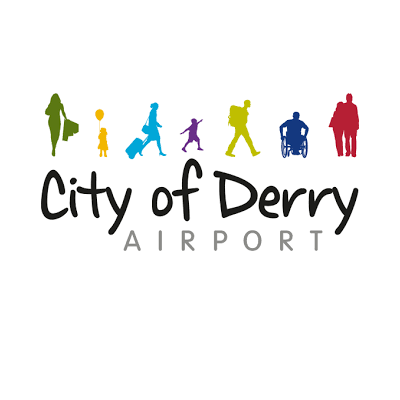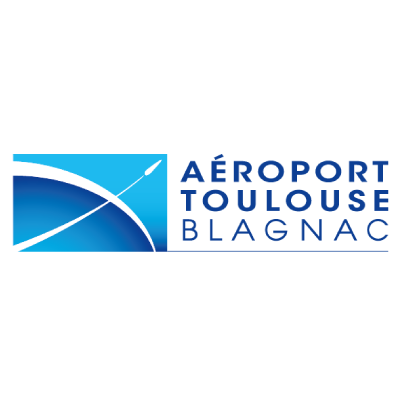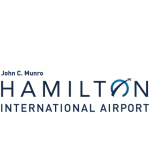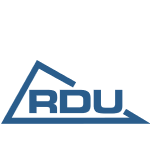Marketing surveys consistently return statistics that show word of mouth is the most important marketing tool, being most used and most effective. According to Nielsen, 92% of people trust recommendations from friends and family over any form of advertising. In contrast, social media marketing is considered much less effective.
The term ‘word of mouth marketing’ is often used synonymously with ‘social media’
While social platforms are unarguably one way to activate word of mouth, they are actually far less effective than the conversations that happen in the real world.
The experiences and opinions of friends, family and colleagues are an important and valued source of information for many consumers. When a friend recommends something in the course of a conversation, that information is likely to be relevant and relatable. Personal recommendations also tend to be heard as more reliable than advertising campaigns because they represent an independent voice (there is no financial incentive) and that voice often belongs to someone the customer already knows and trusts.
Where these recommendations may lack in ‘authority’ or specialist knowledge, they win for trustworthiness.
Consumers are equally likely to research products and services by reading reviews written by people they don’t know. Many brands and retail sites will encourage reviews in order to help customers with purchase decisions. This might lead to more of a process of weighing up good reviews against bad during the path to purchase, but customer-driven information from people who have actually used a product is nonetheless very helpful.
It’s worth noting that direct word-of-mouth, person-to-person conversation or ‘dark social’ shares, will, more often than not, happen in a way that is ‘invisible’ to marketers.
Despite this, it is important for marketers not to leave word of mouth to chance.
Your brand may generate conversations that you never hear, but it is possible to ensure advocacy and positive results from those conversations.
The stats:
Word of mouth can have a powerful effect on brand loyalty. Research from the Wharton School of Business found that customers who come to a brand because of a referral are on average 16-24% more loyal.
Global Web Index data shows that word of mouth is the third most cited source for brand discovery among global Internet users, behind search engines and adverts seen online or on TV. This is often word of mouth from strangers via online reviews.
Global Web Index (GWI) also found that recommendations in person (31%) are more important than either comments or advice on social media (25%) or consumer review sites (22%).
Even with the continuing integration of social media and mobile, face-to-face communication still holds unbeatable value for brand discovery, advocacy and customer trust.
But where does it fit into today’s purchase journey, where online sources compete and overlap with offline? And who is most likely to become a customer as a result of a trusted recommendation?
Global relevance
Word of mouth plays a vital role across all markets. In some regions, diminishing brand trust and privacy concerns have made it increasingly relevant for consumers to look for more traditional brand advocacy sources. This is the case in North America, where GWI reports nearly 4 in 10 (38%) say word of mouth is a key source of product discovery. Product reviews also play a key role in brand discovery in these markets.
Reviews and recommendations are also important outside the B2C sector, extending to B2B. Word of mouth as a marketing strategy is viewed positively by business leaders in the US, with GWI reporting ‘conversations with people from the company on a social network’ as the second most influential source for B2B purchases. 62% of marketing executives agree that word of mouth is the most effective form of marketing.
In the Middle East and Africa, word of mouth holds less sway. Only 23% of digital consumers rely on recommendations to discover new products and services. These people are also less likely to use formal review sites.
Here, ads seen online or on TV are the most common way for customers to discover new brands. There are no obvious reasons for this, but in the Middle East many companies still see social media as a platform through which to sell their brand and extend their reach rather than investing in authentic content, and there is a limited availability of relevant language tools. This might explain why brands in this region have been slower to adopt word of mouth as a marketing tool.
The word of mouth customer
The GWI report gives insights into the customer profiles of those people who value word of mouth. Despite the fact that word of mouth consumers are ‘most likely’ to come from North America, these characteristics are the same across global markets.
For example, older generations are very likely to respond to word of mouth. Over a third of 45-54-year-olds and nearly 40% of 55-64-year-olds say that they discover new brands via word of mouth.
Younger generations use a more diverse set of resources for brand discovery. Word of mouth is the third most effective source for baby boomers and Generation X, behind TV adverts and search engines. It’s fourth for millennials and sixth for Gen Z. Nonetheless, for the younger generations it is still more trusted than social media recommendations.
Compared to the ‘average’ consumer, the people who are most likely to come to a brand through word of mouth are:
- 10% more likely to be in the top 10% of earners
- 15% more likely to be female
- 28% more likely to be divorced or widowed
Brand trust as a driver for advocacy
Changes to data laws in 2018 and a series of high-profile privacy scandals brought change in the way consumers think about privacy and brand trust. There is a strong sense of disillusionment with many online marketing techniques, and many people are tired of the constant bombardment with advertising and sponsored posts, even from their favourite celebrities.
The GDPR has had a positive impact when it comes to accountability. It has given customers greater control over any personal data that is obtained and stored. But the resulting privacy notices, consent pop-ups and general GDPR/PECR related information that comes with any browsing session can also be irritating, and oddly these messages do little to reassure, despite the fact that 88% of consumers claim transparency is the key to trust.
GWI index puts it strongly:
The result is a growing distrust of brands that only engage with their customers through targeted adverts on social media, and a hyperawareness of influencer marketing. People even look sideways at posts from friends who are clearly acting because of a deal or incentive attached to finding new customers.
The fundamental fatigue with marketing techniques have pushed digital consumers more and more towards a very ‘old school’ form of advertising: Personal, no-strings recommendation from someone they trust.
Increasing your word of mouth reach
If your airport can tap into what has been proven to be the most valued form of marketing – recommendations based on experience and trust – you will be able to increase reach and build positive engagement.
This must go beyond social media ‘likes’. In fact, a word of mouth marketing strategy really has less to do with social media engagement than you might think.
While purpose-led campaigns have been shown to be effective in brand growth, travel marketers must be careful not to promote an image that looks fake or insincere. There should be enough great content available from satisfied customers to render the super-filtered Instagram shots redundant.
Brand advocates are the key to word of mouth marketing
In this 2016 TED talk, Chris Cowan, who worked as a marketer for brands including Unilever Disney and Duracell Batteries and subsequently set up the market research agency, Clusters, explains how credible recommendations are much more likely to be passed on than those motivated by rewards.
The people who give these recommendations to friends and family are known as ‘advocates.’ Those people who will publicise a brand because the brand is paying them with freebies are called ‘influencers’.
Read more about the difference between influencers and advocates and how Rezcomm can help your airport to develop a loyal base of customers who will promote your airport via word of mouth in our post: Turning customers into advocates.
The statistics are clear. Organisations that lead in customer experience (CX) outperform their competitors by nearly 80%. Where customer experience is at the core of all operational and marketing strategies, businesses retain a higher share of wallet and have customers who are seven times more likely to purchase more from the company, eight times more likely to try the company’s other products and services and fifteen times more likely to spread positive word of mouth (Qualtrics).
The answer to building word of mouth into your airport marketing strategy is simple: More than ever, it is necessary to focus on building genuine and authentic customer relations.
Rezcomm’s ‘world’s first’ combined platform for airport sales, marketing and customer-centric analytics makes it easy for airports to deliver over and above customer expectation. Advanced data collection and segmentation tools allow you to really personalise each customer’s experience, building value, loyalty and advocacy. You get to know your passengers inside out and they get to enjoy a hassle-free holiday, with the ability to buy travel products and services all in one place.
The customer interface offers transparent value exchanges and transparent data collection, and the automated email marketing features mean you can send creative, on-brand marketing campaigns full of rich and dynamic content, so that happy customers will be spurred to share their experiences.
Rezcomm has access to data from a quarter of a billion passengers worldwide and is expert in accelerating airport revenue through smart, intuitive tech. If you have any questions about how you can use our ecommerce and CRM technology to upgrade your customers’ experience and develop loyal brand advocates, contact us for a chat.






























